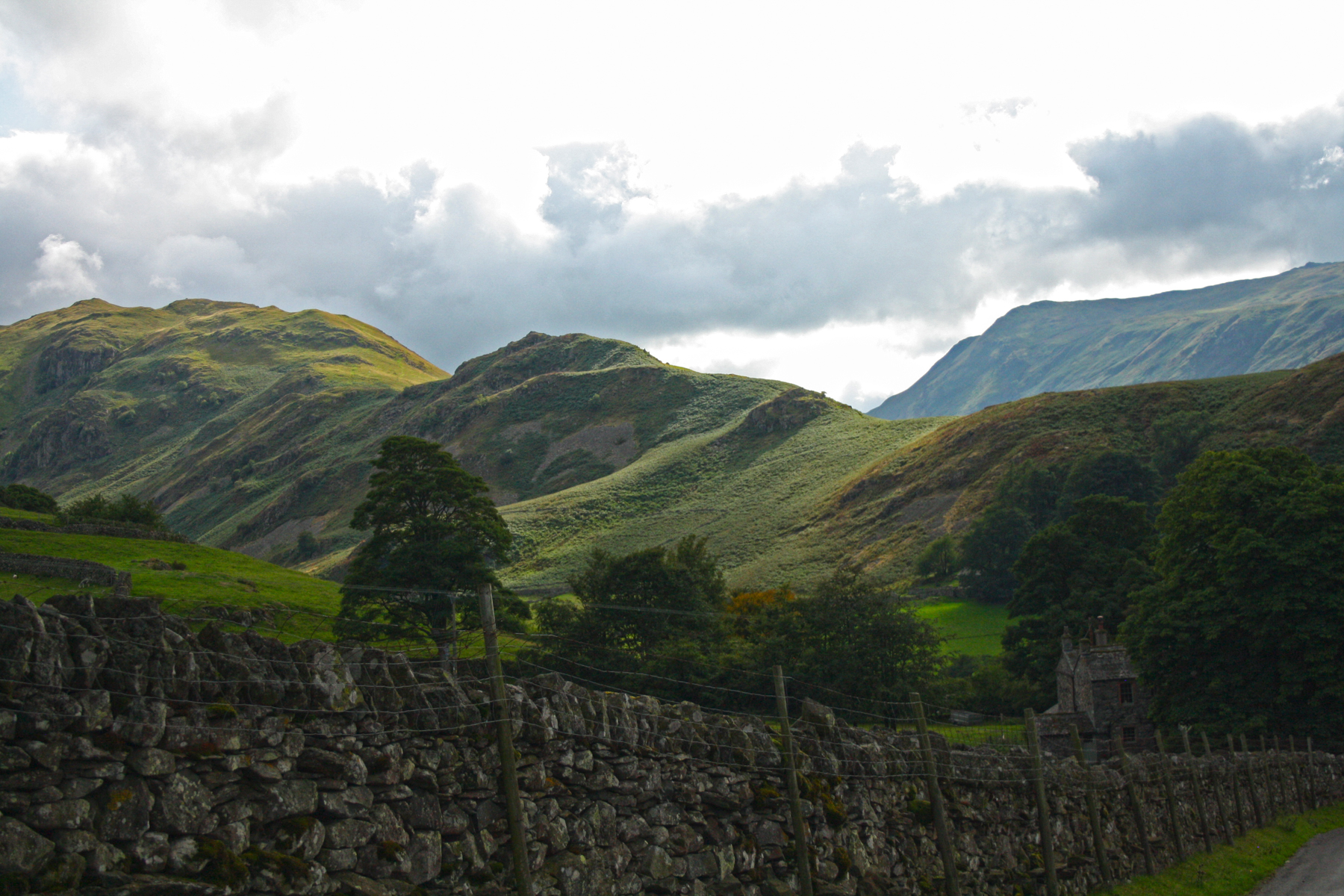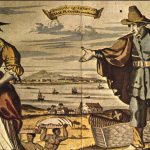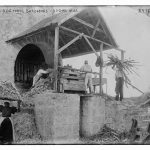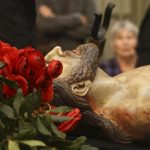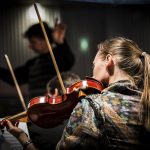STORY BY ELEANOR MARTINDALE
Like so many retired people, my dad, Peter, has spent the past few years “doing the family tree.” He’s spent hours on genealogy websites, downloading baptism certificates and wills from archives that go back generations, looking out for matches with unusual names, coming up against wall after wall and dismantling them brick by brick, name by name.
In a sense, our family is easier than some—at least through the paternal line. Our surname, Martindale, is fairly unusual, and my dad has worked our line back to a Rowland Martindale who died in 1660 in Cumbria, in the northwest of England.
These Martindales and their ancestors before them worked as farmers, landowners, and weavers: jobs that linked them to the land that carried their name. For “Martindale,” before becoming my family’s name, was—and is—a valley in the Lake District. Long before William Wordsworth saw daffodils dancing in a crowd, before Beatrix Potter painted small animals whose stories would fill children’s bookshelves, before hikers and campers and caravans filled the narrow roads and deep valleys of this now-popular district, my forefathers lived and worked here.
It’s a magical place. It’s my place, and my feelings for it run deep.
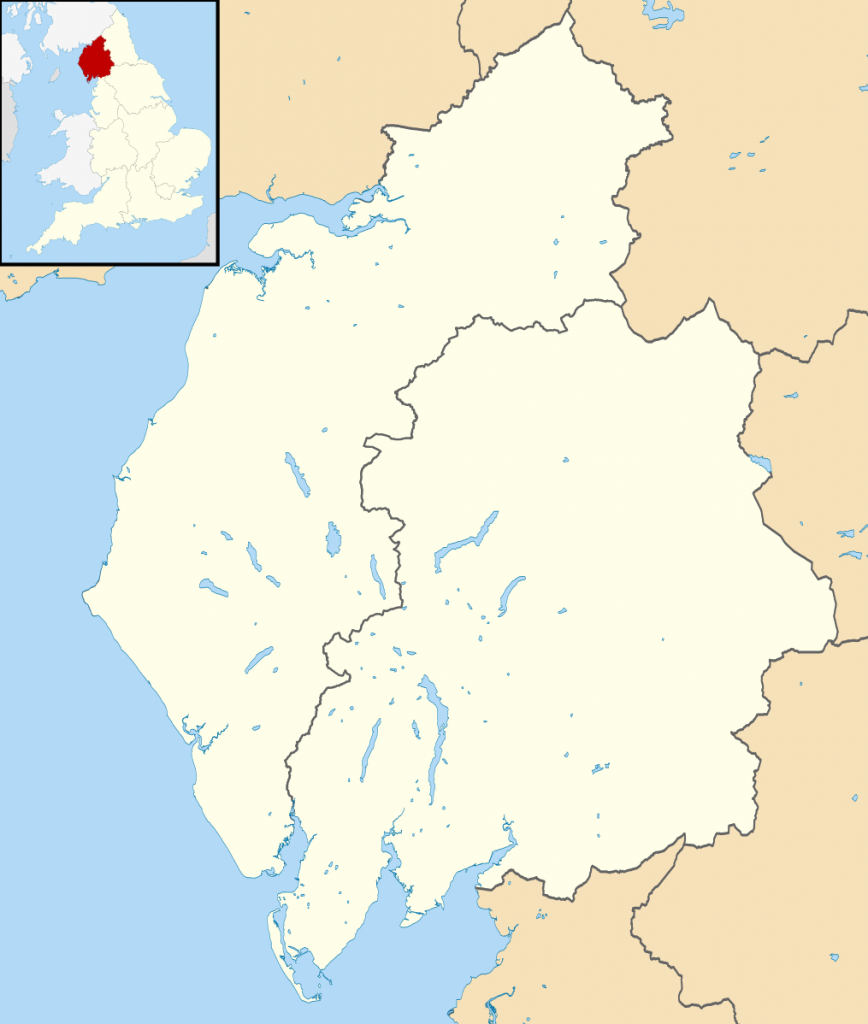
Map of the Lake District in Cumbria. Image courtesy of Creative Commons.
When my dad did his DNA test, there were no skeletons uncovered, no exotic strands from an unknown ancestor, no sudden secrets that needed resolving—his biology matched at over 80% from the northwest of England, and the remainder from the border counties of Scotland. In the valley of Martindale, the old church of St. Martin dates back to the 17th century, with the first recorded baptism an Ellioner Martindale on June 25, 1633.
Although I have never lived in Martindale, I am grounded there, in that lush, green valley crisscrossed with dry stone walls perhaps built by ancestors of mine. It’s a magical place. It’s my place, and my feelings for it run deep.
It would seem that I am not alone in my attachment to this land. Although I said that my name is an unusual one, there are a few thousand Martindales dotted about the globe, and a few hundred of us connect on a Martindale page on social media, looking for family links, remembering the valley where our ancestors lived.
As the Industrial Revolution took hold in the late 1700s, many of the rural Martindales were lured to the city of Liverpool. Many others migrated farther afield, though, and throughout the 18th and 19th centuries, ships left for the New World, carrying Martindales to Virginia and Pennsylvania in the United States and New Brunswick in Canada. Some of my direct ancestors went to South Africa, where my paternal grandfather was born, and others tried their luck searching for gold in Alaska. All this emigrating created a spider’s web of lines spreading out across the Atlantic while tying back to that same center in Cumbria. Not all the Martindales around the world are related by blood, but we are related by place.
From Cumbria to the Caribbean
But here’s where the plot thickens. Looking up a few statistics about Martindales around the world, I was struck to see that the densest population is no longer in the northwest of England, nor is it in America’s East Coast. Strangely enough, the place in the world with the highest concentration of Martindales is the relatively small island of Barbados in the Caribbean, an island that, in November 2021, became the world’s newest republic when it formally broke ties with the British monarchy. In fact, throughout the English-speaking Caribbean, Martindales are scattered about—several in Jamaica, others in Trinidad or the Bahamas. These significant lines of Afro-Caribbean Martindales spider out, not from a valley in northern England, but from Barbados, the eastern-most island of the Caribbean archipelago.
One hundred and fifty-one Martindales live on this tiny spot in the vast ocean, an island of just 14 by 21 miles with a population of just over 287,000. On Ancestry, a search limiting results to Martindales in Barbados brings over 22,000 results of baptisms, marriages, and deaths. In a rank of surnames from most common to least, Martindale comes in 360th place in Barbados (compared to 4704th in the USA or 2430th in England). And for a country where only 4% of the population is white, we can assume that many of these Martindales are of Afro-Caribbean heritage.
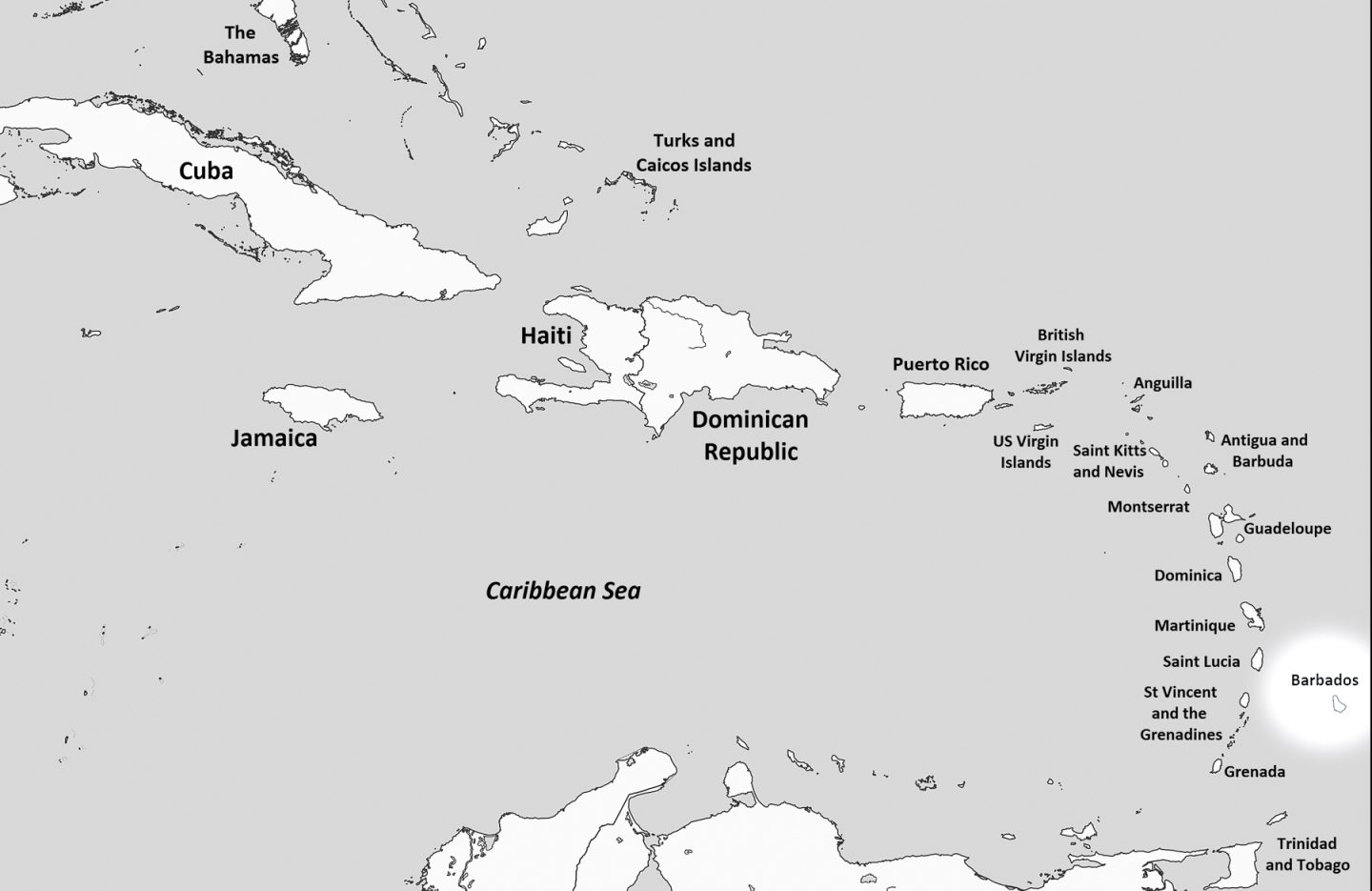
The Caribbean (adapted from Shadowxfox / Wikimedia Commons / CC BY SA 3.0)
Knowing that so many of my ancestors had left England for the New World, I asked my father if he had come across any Caribbean links in his family research. I was fairly sure he hadn’t—he keeps me regularly updated with interesting snippets he comes across, and I would have remembered this. He scratched his head and said that he would keep his eyes peeled but no, Barbados did not ring any bells. And so I fell down my own rabbit hole of research. Who were the Barbados Martindales?
At first, Google didn’t seem too well-adapted to help me out. “Barbados Martindale” gives almost 800,000 results, the first pages almost all dedicated to Manny Martindale, a famous member of the West Indies cricket team in the 1930s, or to addresses on Martindales Road, a main thoroughfare running through Barbados’s capital, Bridgetown. Was the street named for Manny or some other Martindale, I wondered? No, not Manny, since the road exists on an early map from 1900, before that sportsman was born. So the notable Martindales of the previous century—were they slave owners or slaves? Given the likelihood of naming a street for a Black person pre-1900, the answer is almost certainly the former. The white Martindales must have been a prominent family, worthy enough to have streets named after them.
Page after page bore more of the same, and on the verge of giving up, I clicked an umpteenth link referring to an umpteenth John Martindale, telling myself it was the last one, that I’d wasted far too much time already. I skimmed through the page. I stopped. I started again, slowly, then read it a third time and a fourth time too.
This John Martindale was born in England, date unknown, but his occupation was listed as “sugar plantation, Barbados.” This John Martindale had a son, also named John. John Martindale Jr. was born in Barbados sometime between 1628 and 1638.
Double take, read that again.
His son was born in Barbados in the early 1600s? All those articles that said Martindales had lived in Barbados for many years were not lying. This family was among the very first European settlers of the Caribbean, arriving sometime after 1627. When John Sr. was born, Shakespeare was still alive. Sir Walter Raleigh, that most famous of pirates, was still alive. Galileo was still alive.
Caribbean Sugar and the Martindales
The Martindales arrived in Barbados before the start of the sugar industry and the slave trade to which it is inexorably linked. They arrived well before the English Civil War, at a time when James I was still king of England and Elizabeth I was very much in living memory. And unlike so many other early settlers of those isles, these Martindales stayed, persevering through the seemingly impossible early years, through hurricanes and fire, as the sugar and slave trade developed hand-in-chained-hand. They were there before the slave trade began and were compensated when it was abolished some 200 years later.
And they stayed throughout the 19th century too, though their name was no longer the preserve of white settlers. In those 200 years, how many slaves passed through their plantations? How many were freed? How many took their name? No wonder there are so many Martindales in Barbados. It is one of the oldest recorded names in the Caribbean.
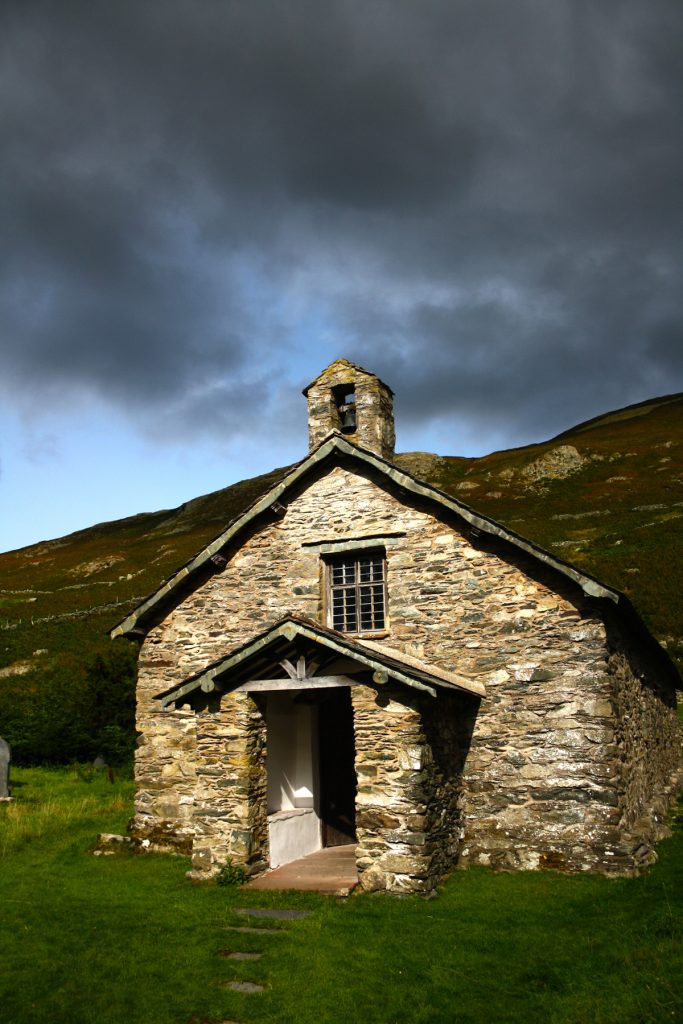
Construction of the old church of St. Martin dates to the late 16th century, though the earliest known reference of a chapel here is from 1220. Photo by Eleanor Martindale.
Come back to Anthrow Circus the next two Mondays (click here for Part 2 and Part 3 of the story) to continue exploring the fascinating history of the Martindale family!
Eleanor Martindale is a self-employed online tutor, teaching English literature, creative writing, and French to young people all over the globe. Born and raised in the U.K., she has spent all her adult life in France and now lives in French Catalonia with her French-Catalan partner, Bernard Salles, a professional musician. She plays the violin in several musical groups that Bernard runs, and when she isn’t teaching, she is usually found working on one of their orchestral projects. In whatever spare time she can find, she enjoys photography, drawing and painting, and of course writing.

